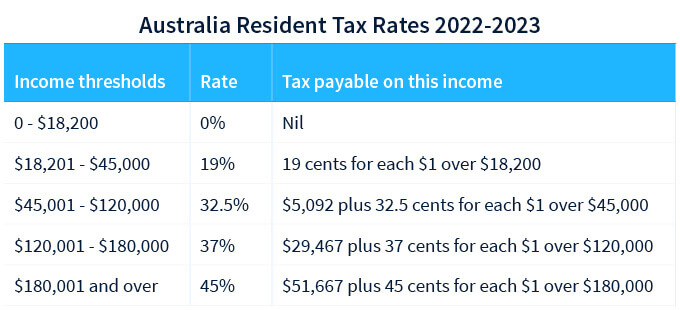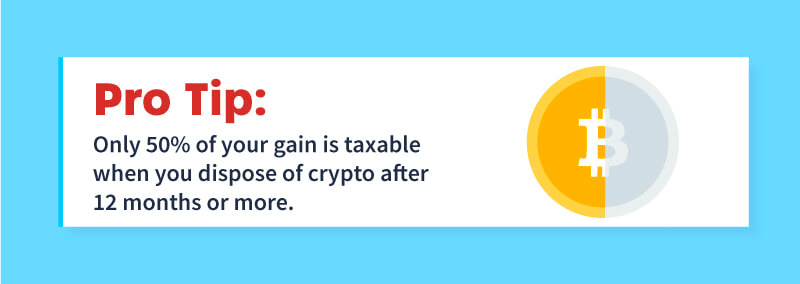Crypto Tax Hacks: Little-Known Deductions for Australia Traders
Learn how to save extra money this tax season with our five easy-to-implement Australian crypto tax deductions.


Are you an Australian investor looking to save money on your crypto tax bill? In a country where taxes on crypto profits can be as high as 45%, it is worthwhile to take steps to legally reduce your tax liability.
This article will explore five simple tips that can potentially help Australian investors save thousands of dollars. We’ll walk through easy-to-implement strategies that can help you keep more of your hard-earned crypto profits in your pocket.
How do Crypto Taxes Work in Australia?
Before we go through our tax-saving tips, let’s briefly review the fundamentals of how cryptocurrency is taxed in Australia.
The Australian Tax Office (ATO) considers cryptocurrency subject to capital gains tax and income tax.
When you dispose of crypto, you’ll recognize capital gains tax. This includes buying, selling, trading, and even spending your crypto.
When you earn crypto, you’ll recognize income tax. This includes earning crypto from mining, staking, airdrops, and hard forks.
ATO crypto guidelines mandate detailed reporting for these transactions, including the date of acquisition and disposal, fair market value in AUD, the purpose of the transaction, and recipient details, ensuring a transparent record of your crypto dealings.
Key Things to Remember about Australian Crypto Taxes:
Before we examine our tax-reduction strategies, let’s go over a few key points about Australian crypto taxes.
- Capital Gains Tax (CGT): When you sell or exchange cryptocurrency, the difference between the purchase price (cost base) and the sale price is considered a capital gain or loss, and is added to your assessable income, making it taxable. Capital gains are taxed between 0-45%. To help you calculate your crypto profits & losses, there are numerous free online tools available.

- Cryptocurrency as an Investment: If you’ve held cryptocurrency for longer than 12 months, your profits will be subject to a 50% discount. This can lead to huge savings for crypto investors!
- Trading Crypto: Disposing of crypto, whether crypto-to-crypto or crypto-to-fiat, can trigger a taxable crypto event, with gains or losses calculated based on the market value in AUD at the time of the transaction
Now that we’ve covered the basics of how crypto taxes work in Australia, let’s walk through 5 steps that can help you reduce your crypto tax bill.
The 5 Ways to Minimize Crypto Taxes in Australia
To reduce tax obligations for cryptocurrency transactions in Australia, consider these five strategies:
1. Report Crypto Losses
Capital losses from crypto investments can offset capital gains, effectively reducing your tax bill. It’s important to understand how to recognize and report these losses correctly.
- Recognising Losses: A capital loss occurs when you sell, trade, or otherwise dispose of a cryptocurrency for less than its cost base. Keep in mind that losses can only offset capital gains, not other types of income.
- How to Report: To report a loss, you must have a record of the transaction, including the date of acquisition and disposal, the fair market value in AUD at receipt and disposal, and the type of transaction. These losses are then included in your tax return. If you have a net loss for the year, your loss can be carried forward to future years.
2. Hold for the Long Term

Holding your cryptocurrency for more than 12 months can qualify you for the CGT discount, which is 50% for individuals. This effectively means you’ll only be taxed on half of your capital gain.
- Strategic Holding: Consider the timing of your cryptocurrency disposals. If you’re approaching the 12-month mark, it might be beneficial to wait before selling or trading.
- Documentation: Ensure you have clear records of purchase dates to substantiate your claim for the CGT discount.
3. Donate Cryptocurrency

Donating cryptocurrency to a registered charity is not only a great way to contribute to a good cause, but it’s also tax deductible! The market value of the donated cryptocurrency can be deducted from your taxable income.
- Eligible Charities: Make sure the charity is registered and accepts cryptocurrency donations.
- Valuation: The deduction is valued at the fair market price of the cryptocurrency at the time of donation, and you must keep a record of the donation receipt.
4. Gas Fees and Transaction Fees
The costs associated with executing transactions, known as gas fees in the Ethereum network, can be added to the cost base of your cryptocurrency. This can reduce your capital gain upon disposal.
- Record-Keeping: Maintain detailed records of all transaction fees associated with your crypto transactions, as these can be used to adjust the cost base of your holdings.
5. Deduct the Cost of Tax Preparation
The fees associated with hiring a professional to prepare your cryptocurrency tax filings can be deductible. This includes any software you might use for tracking and reporting for crypto assets.
- Professional Advice: Consulting with a tax professional who specializes in cryptocurrency can ensure compliance and optimize your deductions.
- Documentation: Keep receipts of any tax-related expenses as proof for your deduction claims.
In Conclusion
As tax season looms, it’s crucial to use these tax-saving strategies to reduce your tax burden. By keeping accurate records and seeking professional advice if necessary, you can make the process of filing crypto taxes in Australia less overwhelming and more profitable.
If you want to learn more about doing your Easy Crypto taxes, check out our integration with CoinLedger here.
Frequently Asked Australia Crypto Tax Questions
What types of taxes apply to Bitcoin and other cryptocurrencies in Australia?
In Australia, cryptocurrencies like Bitcoin are considered a form of property and are subject to capital gains tax (CGT) when disposed of and income tax when earned through employment, mining, staking, or other means.
How can the Australian Taxation Office (ATO) track my cryptocurrency transactions?
The ATO uses a data-matching program to access data from cryptocurrency-designated service providers, making it likely that they already have information about your cryptocurrency transactions.
What should I do if I receive a warning letter from the ATO regarding my cryptocurrency transactions?
If you receive a warning letter from the ATO, it’s crucial to ensure that you accurately report your capital gains and income from cryptocurrencies for the current and previous tax years.
How is the tax treatment different for cryptocurrency traders and investors in Australia?
Traders and investors are taxed differently in Australia. Traders can deduct relevant costs as expenses but are ineligible for the 50% long-term capital gains discount, while investors can receive the discount but cannot deduct expenses.
How do I calculate my capital gains for cryptocurrency transactions?
Capital gains can be calculated using the formula: Capital Gain/Loss = Proceeds – Cost Base. The cost base is the purchase price plus any relevant fees, and proceeds are the selling price minus any fees.
What is the deadline for lodging cryptocurrency taxes in Australia for the financial year 2023-2024?
The deadline for self-lodged tax returns is October 31, 2024. You may qualify for an extended deadline if you are registered as a client for an accountant by October 31.
Guest Author: Dhiraj Nallapaneni
Dhiraj Nallapaneni is a Content Marketing Manager and Cryptocurrency Tax Writer at CoinLedger. As an Economics degree holder from the University of California Santa Barbara, he’s well-versed in topics like cryptocurrencies, markets, and taxation.
Dhiraj has been deeply involved with the cryptocurrency ecosystem since 2017. He currently resides in San Francisco, California.
Share to
Stay curious and informed
Your info will be handled according to our Privacy Policy.
Make sure to follow our Facebook, Twitter, Instagram, and YouTube channel to stay up-to-date with Easy Crypto!
Also, don’t forget to subscribe to our monthly newsletter to have the latest crypto insights, news, and updates delivered to our inbox.
Disclaimer: Information is current as at the date of publication. This is general information only and is not intended to be advice. Crypto is volatile, carries risk and the value can go up and down. Past performance is not an indicator of future returns. Please do your own research.
Last updated July 18, 2024






